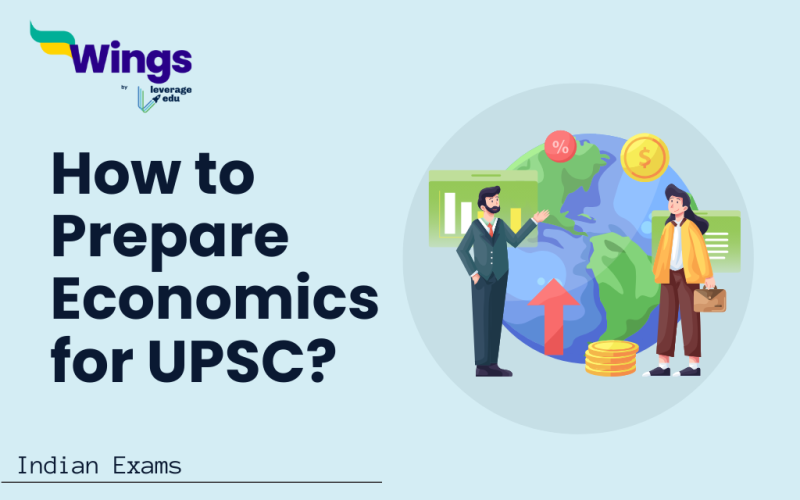Indian economy and economics are regarded as being important topics covered in the UPSC civil services test. It is a topic that is pertinent to the UPSC IAS Exam. Although there are many books on the market, it’s crucial to pick the ones that are highly suggested for the IAS Mains exam in Economics.
When compared to other optional disciplines, economics is thought to be a challenging subject. The concepts and theories should be covered first if the candidate is an economics graduate. Following that, candidates must work on current events in addition to adding a finishing touch by the UPSC syllabus.
We will discuss what books will help you master the Economic Optional exam at UPSC. Various books are readily available in the market; however, it is important to choose the right book for your UPSC IAS mains exam. Below, we will also discuss how you can choose the right book for yourself. Without wasting time, let’s jump toward the article.
Contents
Pros✅ and Cons❌ of Choosing Economic Optional for UPSC
Like all the other subjects, economics also has its pros and cons. When deciding an optional subject, an individual’s preference matters a lot. However, here are some general points to consider while choosing the optional subject.
✅ Pros of Choosing Economics Optional
- Overlapping with General Studies: Economics overlaps with General studies in topics like economic development, the Indian economy, and international relations. Hence, choosing this subject as optional will help in making your preparation more effective.
- Access to Current Affairs: Economics has a close relation with current events. As a result, you also stay connected with the current affairs. Staying updated with current affairs is very important when you are preparing for UPSC.
- Subject Interest: It can be a really scoring subject if you have a keen interest in the subject. Also, you will enjoy reading the subject matter and retain it faster.
- Study Material Availability: The study material for this subject is readily available over the Internet.
- Career Opportunities: If you have an economics-related background there will be various opportunities opened up for you in civil services, economic research, and policy-making.
❌ Cons of Choosing Economics Optional
- Competitive Subject: Economics is a popular optional subject, and there is a significant sense of competition among the students. Hence, it can be a bit difficult to secure marks in this subject.
- Vast Syllabus: There is a huge syllabus for this subject; hence, it can be a bit difficult for you to cover the whole syllabus in the limited time of preparation.
Must Read: Study for UPSC through Documentaries on India
How Do I Choose the Right Book? 🤷♀️
Choosing the right book completely depends upon your choice of author. However, you should check the general guidelines before picking one book for yourself.
- You will be able to quickly decide on the best book if you research the book on the online platform.
- Take the student’s feedback and suggestions to choose the right book. No one can suggest better than a person who has first-hand experience.
- Consider taking suggestions from your mentors or professors. These people will tell you in detail about a particular book.
The UPSC Economics optional course is extensive. Candidates must have a degree-level comprehension. So one must focus on picking the right set of books for a thorough understanding of the subject.Here we have listed some of the most referred books on the economy optional for UPSC:
| Books Name | Author Name | Direct Amazon Link |
| Indian Economy | Ramesh Singh | Direct Link |
| The Indian Economy | Sanjiv Verma | Direct Link |
| Indian Economy | R. Dutt and KPM Sundaram | Direct Link |
| Banking | S.B. Gupta | Direct Link |
| Dictionary of Economics | Graham Bannock, T.E. Baxter, and Ray Rees | Direct Link |
| Economic Growth and Development | Mayer and Baldwin | Direct Link |
| Economics | Paul A. Samuelson | Direct Link |
| Economics Choice | Koutsweanik | Direct Link |
| Growth and Development | M L Jhingan | Direct Link |
Related Blogs
| UPSC Book List | Best Public Administration Books for UPSC |
| Best Political Science Books for UPSC | How to Prepare for UPSC 2024 at Home? |
| How Many Questions are there in UPSC Mains? | 🧑💻UPSC Preparation for Working People |
FAQs
The success rate of economics is quite high, however, a major part of choosing an optional subject depends on your choice. If you have an interest in the economics subject, you will find it easier to study.
It is generally a logical subject and is very scoring. If you cover the syllabus well you will be able to secure good marks in the examination.
Ramesh Singh’s book is written in a simple and conversational style of writing. Whereas, Sanjiv Verma’s book is more detailed and technical. If you prefer an easy-to-understand and conversational style of writing then, go with Sanjiv Verma’s book. Otherwise, choose Ramesh Singh.
This was all about the “Best Books for UPSC Optional Economics”. For more such informative blogs, check out our UPSC Exams Section, or you can learn more about us by visiting our Indian exams page.


 One app for all your study abroad needs
One app for all your study abroad needs












 60,000+ students trusted us with their dreams. Take the first step today!
60,000+ students trusted us with their dreams. Take the first step today!